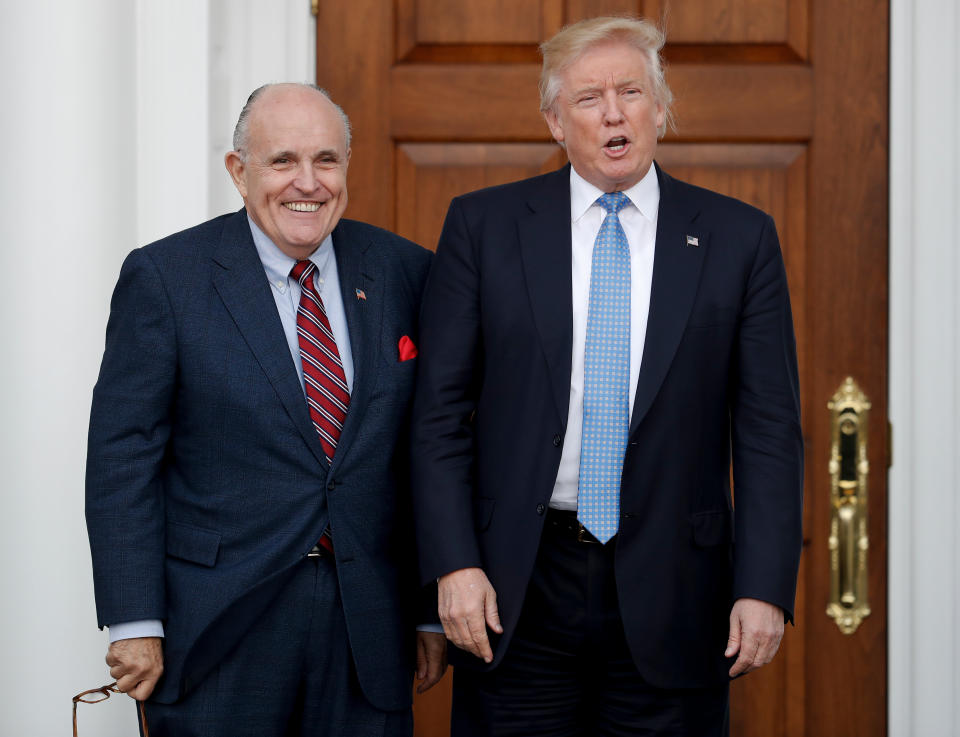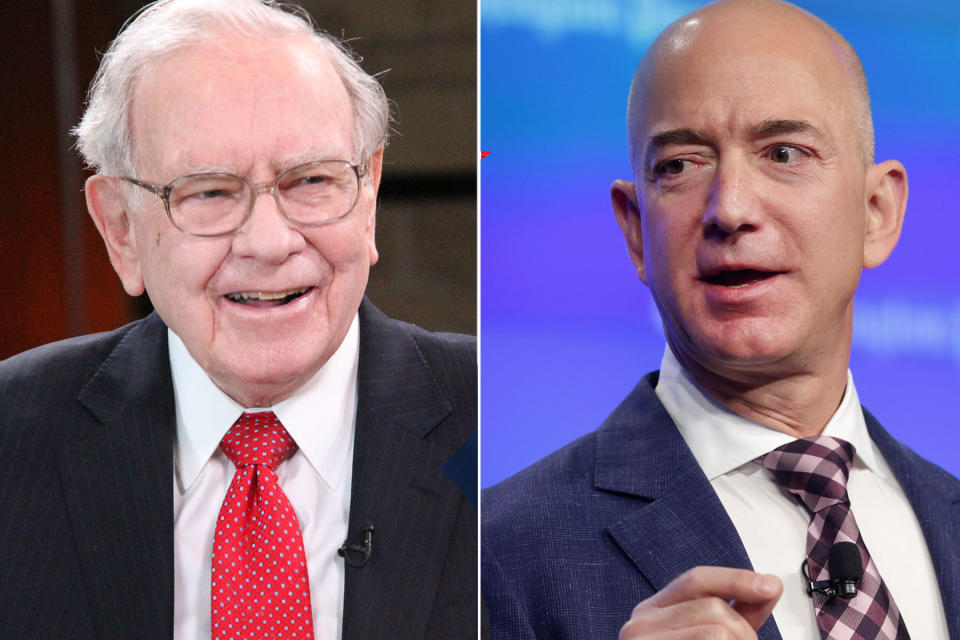What you need to know in markets on Friday
Stocks took a breather on Thursday, with Apple (AAPL) and chip stocks leading the way down.
Shares of the iPhone maker dropped 2.8% on Thursday after Apple’s largest chipmaker, Taiwan Semiconductor, offered poor guidance citing soft demand for smartphones. An ETF which tracks semiconductor stocks dropped over 4% on the day.
Apple’s drop and the decline other chip names like Intel (INTC), Nvidia (NVDA), and Micron (MU), saw the tech-heavy Nasdaq serve as the laggard Thursday, falling 0.8%, or 57 points.
The Dow dropped 83 points, or 0.3%, and the S&P 500 lost 15 points, or 0.6%. Stocks moved off their lows of the day late in the sessions after a report from Bloomberg said President Donald Trump isn’t likely to fire special counsel Robert Mueller after Deputy Attorney General Rod Rosenstein told Trump he is not a target of Mueller’s investigation.
A report from The Washington Post late Thursday said Rudy Giuliani, former mayor of New York and a close confidant of Trump, would join Trump’s legal team to “negotiate an end” to the Mueller probe.

With political news likely to be making waves both in markets and abroad, the earnings calendar on Friday will bring a few big names reporting earnings from both the industrial and banking sectors, with Honeywell (HON), Waste Management (WM), Schlumberger (SLB), SunTrust (STI), State Street (STT), and Kansas City Southern (KSU).
And on the economic data calendar, no major data is set for release.
It’s Jeff Bezos’ world. We’re just living in it.
On Wednesday, Jeff Bezos, the founder and CEO of Amazon (AMZN), published his 20th letter to Amazon shareholders.
The headline from this letter was the big reveal that Amazon has more than 100 million Prime subscribers around the world. Shares of Amazon gained nearly 2% on Thursday amid a sell-off in the market following this news.
But the letter also contained insight from Bezos on how he tries to run a company is the unquestioned leader of an e-commerce category that has grown from almost non-existent in 1997 to a landscape-changing force today and made him the richest man in the world.
And it is these letters that captures the transition which has made Bezos, in my view, the logical heir to Warren Buffett as the singular leader of American business.

For the last few decades, Buffett, the CEO of Berkshire Hathaway (BRK-A, BRK-B), has served as something like the spokesperson for American business. When the country needed a voice to calm its collective nerves in the thick of the financial crisis, it was Buffett who published an op-ed in The New York Times.
But Buffett’s fortune was amassed picking stocks during the post-World War II boom that saw the U.S. markets and economy flourish. His annual letters are some of the most widely-read pieces of market commentary each year.
And these letters will be read for generations by investors trying to understand what the Oracle of Omaha valued and recognized in the businesses he purchased which helped his company’s stock compound at over 20% a year for five decades.
In our current moment, however, when the distinction between the “internet economy” and just the regular old business world becomes increasingly irrelevant, it is Jeff Bezos that pushes forward the business leadership of today and tomorrow.
In his recent letter to shareholders, Bezos discussed a friend’s quest to do a perfect handstand, and how two weeks of practice might seem sufficient, but that this is really a six month endeavor.
The business lesson: “To achieve high standards yourself or as part of a team, you need to form and proactively communicate realistic beliefs about how hard something is going to be – something this coach understood well.”
Bezos also outlined how Amazon’s meetings begin with attendees reading a six-page memo presented by whoever is running the meeting, setting the agenda and the vision for the session, while PowerPoint presentations are explicitly banned. And in previous letters, Bezos has outlined his concept of Amazon’s “flywheel,” which brings customers into its ecosystem and increasingly delights them to drive more sales to more products, more often.
And these are but some of the ways Bezos has tried to structure Amazon to make it a company that sends stocks in any sector tumbling even on a rumor.
So while Bezos’ annual letters to shareholders don’t include the detailed accounting lessons or more philosophical discussions of how the masses should think about investing that a Buffett letter might, these entries are of and for the modern moment.
And that moment is Jeff Bezos’.
—
Myles Udland is a writer at Yahoo Finance. Follow him on Twitter @MylesUdland
Read more from Myles here:

 Yahoo Finance
Yahoo Finance 
